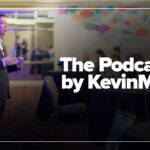For years, physicians have given their time and mental space freely. But medicine has changed dramatically. It’s not the same field it was 40 years ago. Even 20 years ago.
Today, the pressures are higher than ever. Corporations now own many hospitals and outpatient practices. Insurance companies keep slashing reimbursements while demanding more documentation, more prior authorizations, and denying care more frequently. The administrative burden has exploded.
Meanwhile, inflation soars. Student loan debt grows. Commutes are longer. Homeownership feels out of reach. We battle compassion fatigue, burnout, threats from patients, and the expectation to maintain perfect satisfaction scores—while being expected to smile through it all. We’re charting at home, checking messages after hours, on-call and facing real danger, like mass shootings at hospitals. And let’s not pretend: Our salaries are not keeping pace with the cost of living.
Yes, I said it! My paycheck is not matching inflation. There’s a myth that doctors are wealthy. The truth? Some of us can’t even afford to live where we work.
Despite all this, we’re still expected to give more: To volunteer for initiatives, join committees, teach, research, lead workgroups—all to serve the organization’s bottom line. All while non-clinicians sit in top-floor offices making cuts, increasing patient panels, downsizing staff, and stripping away autonomy.
Many of us are saying: I have nothing left to give. When we choose to set boundaries—when we do our jobs well, go home, and protect our peace—we’re labeled lazy, unmotivated, not a “team player.”
But let’s not forget what we’ve already given: Stellar academic performance since pre-K. Four years of undergrad. Maybe a graduate degree. Four years of medical school. Three to six years of training. Missed holidays, family celebrations, spring breaks and vacations. Countless exams, study groups, question banks. Board certifications. Maintenance of certification. Continuing medical education. Credentialing. Licensure. DEA registration. And the mental toll of it all.
In 2024 vernacular we say: Stop gaslighting us. Respect our boundaries. Medicine has become toxic and I’m choosing my mental health. The generational trauma stops with me.
Aisha Quarles is a pediatrician.


















!["Disruptive" behavior is often a cry for help from depleted doctors [PODCAST]](https://kevinmd.com/wp-content/uploads/Design-1-190x100.jpg)
![Community cooperatives offer a solution to the affordable health care crisis [PODCAST]](https://kevinmd.com/wp-content/uploads/Design-4-190x100.jpg)

![Teaching joy transforms the future of medical practice [PODCAST]](https://kevinmd.com/wp-content/uploads/Design-1-1-190x100.jpg)
